Abarth 500 595 695 vs Audi Q8 e-tron - Differences and prices compared
Compare performance (155 HP vs 503 HP), boot space and price (32600 £ vs 65100 £ ) at a glance. Find out which car is the better choice for you – Abarth 500 595 695 or Audi Q8 e-tron?
Costs and Efficiency:
Looking at overall running costs, both models reveal some interesting differences in everyday economy.
Abarth 500 595 695 has a convincingly advantage in terms of price – it starts at 32600 £ , while the Audi Q8 e-tron costs 65100 £ . That’s a price difference of around 32495 £.
In terms of energy consumption, the advantage goes to the Abarth 500 595 695: with 17.10 kWh per 100 km, it’s somewhat more efficient than the Audi Q8 e-tron with 19.70 kWh. That’s a difference of about 2.60 kWh.
As for electric range, the Audi Q8 e-tron performs decisively better – achieving up to 595 km, about 330 km more than the Abarth 500 595 695.
Engine and Performance:
Power, torque and acceleration are the classic benchmarks for car enthusiasts – and here, some clear differences start to show.
When it comes to engine power, the Audi Q8 e-tron has a significantly edge – offering 503 HP compared to 155 HP. That’s roughly 348 HP more horsepower.
In acceleration from 0 to 100 km/h, the Audi Q8 e-tron is convincingly quicker – completing the sprint in 4.50 s, while the Abarth 500 595 695 takes 7 s. That’s about 2.50 s faster.
In terms of top speed, the Audi Q8 e-tron performs noticeable better – reaching 210 km/h, while the Abarth 500 595 695 tops out at 155 km/h. The difference is around 55 km/h.
There’s also a difference in torque: Audi Q8 e-tron pulls clearly stronger with 973 Nm compared to 235 Nm. That’s about 738 Nm difference.
Space and Everyday Use:
Cabin size, boot volume and payload all play a role in everyday practicality. Here, comfort and flexibility make the difference.
Seats: Audi Q8 e-tron offers to a small extent more seating capacity – 5 vs 4.
In curb weight, Abarth 500 595 695 is convincingly lighter – 1410 kg compared to 2585 kg. The difference is around 1175 kg.
In terms of boot space, the Audi Q8 e-tron offers decisively more room – 569 L compared to 185 L. That’s a difference of about 384 L.
In maximum load capacity, the Audi Q8 e-tron performs significantly better – up to 1637 L, which is about 1087 L more than the Abarth 500 595 695.
When it comes to payload, Audi Q8 e-tron clearly perceptible takes the win – 595 kg compared to 385 kg. That’s a difference of about 210 kg.
Who comes out on top?
Overall, the Audi Q8 e-tron shows itself to be outperforms in nearly all aspects and secures the title of DriveDuel Champion.
It convinces with the more balanced overall package and proves to be the more versatile choice for everyday use.
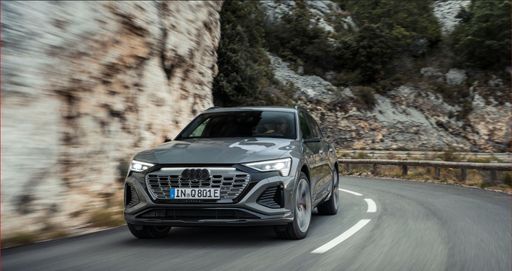
Audi Q8 e-tron
Costs and Consumption
View detailed analysis
Engine and Performance
View detailed analysis
Dimensions and Body
View detailed analysis
Abarth 500 595 695
The Abarth 500, particularly in its 595 and 695 renditions, captures the spirit of Italian motoring with its compact yet aggressive design. Known for its lively performance and distinctive styling, this little powerhouse is a joy to drive, offering an engaging experience that appeals to enthusiasts. With its rich motorsport heritage, the Abarth 500 embodies the essence of fun and excitement on both the streets and the race track.
details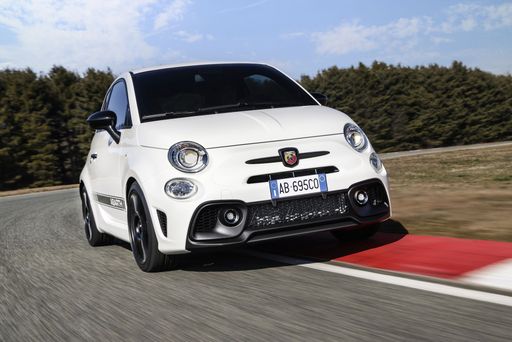
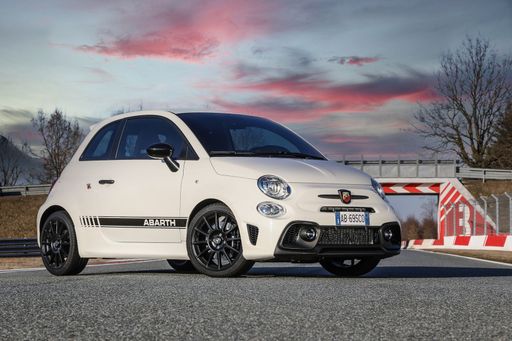
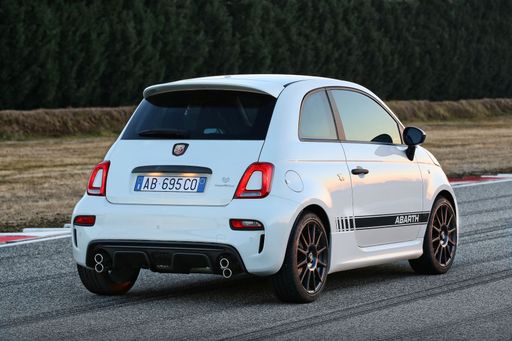
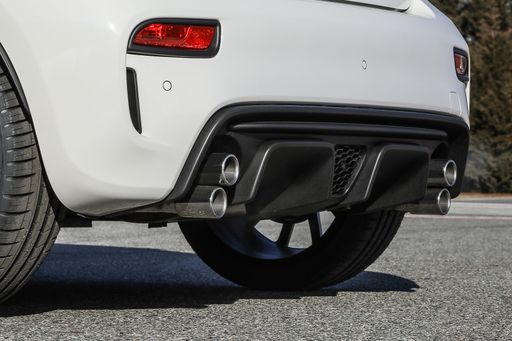
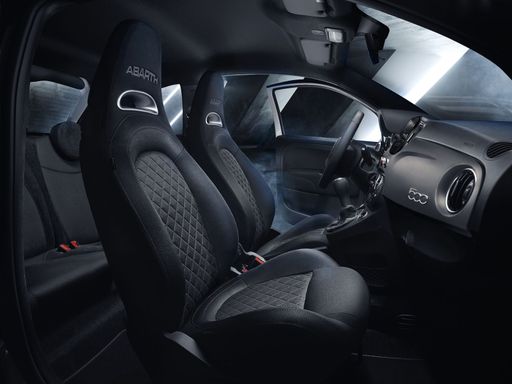
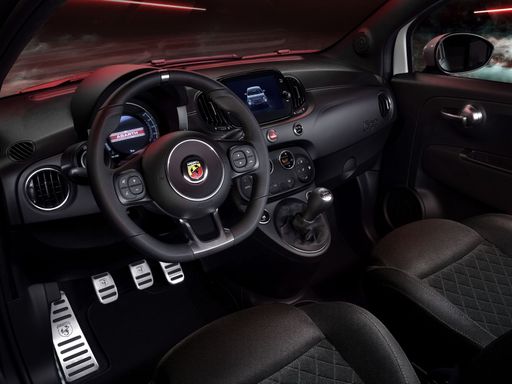
Audi Q8 e-tron
The Audi Q8 e-tron wraps Audi’s usual premium polish into a quiet, composed electric SUV that feels refined and surprisingly effortless to drive. With a spacious, tech-forward cabin and understated road presence, it’s a practical yet stylish choice for buyers who want electric motoring without losing the dignity of a proper luxury SUV.
details
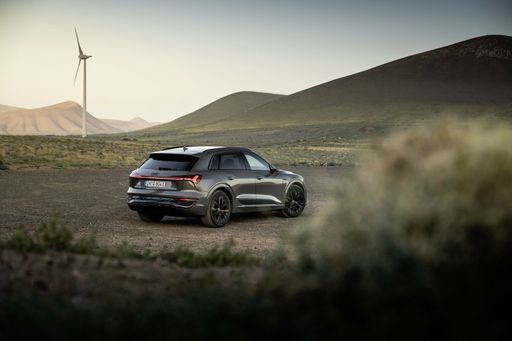
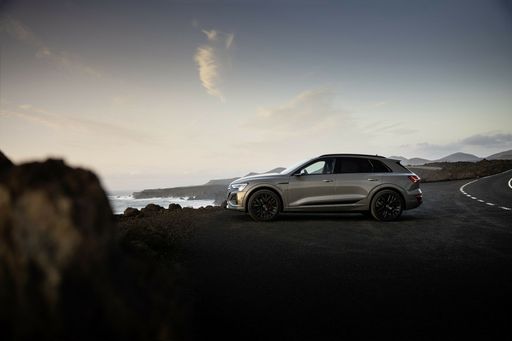
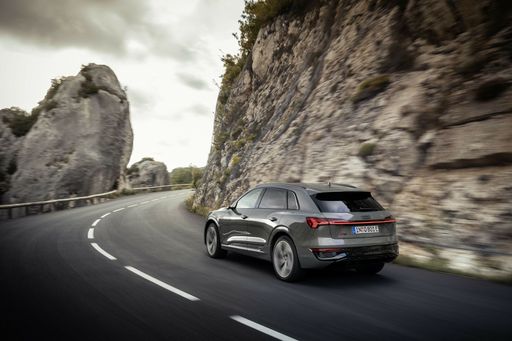
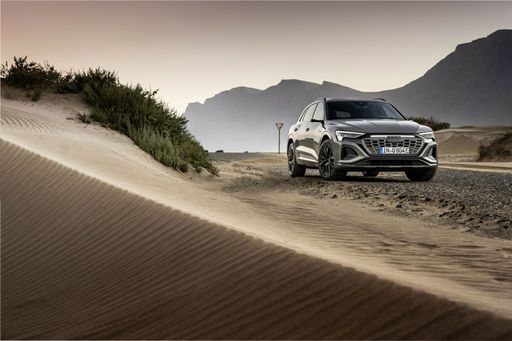
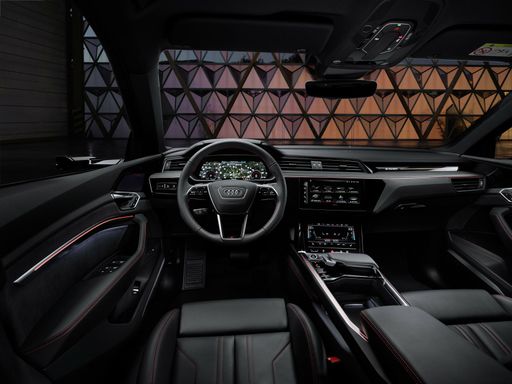
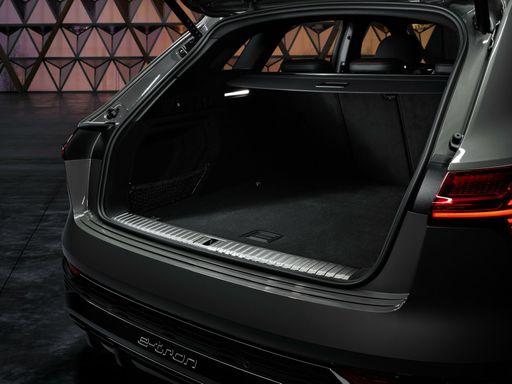
Costs and Consumption |
|
|---|---|
|
Price
32600 - 39400 £
|
Price
65100 - 102800 £
|
|
Consumption L/100km
-
|
Consumption L/100km
-
|
|
Consumption kWh/100km
17.1 - 18.8 kWh
|
Consumption kWh/100km
19.7 - 26.3 kWh
|
|
Electric Range
242 - 265 km
|
Electric Range
456 - 595 km
|
|
Battery Capacity
37.80 kWh
|
Battery Capacity
89 - 106 kWh
|
|
co2
0 g/km
|
co2
0 g/km
|
|
Fuel tank capacity
-
|
Fuel tank capacity
-
|
Dimensions and Body |
|
|---|---|
|
Body Type
Hatchback
|
Body Type
SUV
|
|
Seats
4
|
Seats
5
|
|
Doors
3
|
Doors
5
|
|
Curb weight
1410 - 1435 kg
|
Curb weight
2585 - 2725 kg
|
|
Trunk capacity
185 L
|
Trunk capacity
528 - 569 L
|
|
Length
3673 mm
|
Length
4915 mm
|
|
Width
1682 mm
|
Width
1937 - 1994 mm
|
|
Height
1518 mm
|
Height
1617 - 1683 mm
|
|
Max trunk capacity
550 L
|
Max trunk capacity
1567 - 1637 L
|
|
Payload
370 - 385 kg
|
Payload
515 - 595 kg
|
Engine and Performance |
|
|---|---|
|
Engine Type
Electric
|
Engine Type
Electric
|
|
Transmission
Automatic
|
Transmission
Automatic
|
|
Transmission Detail
Reduction Gearbox
|
Transmission Detail
Reduction Gearbox
|
|
Drive Type
Front-Wheel Drive
|
Drive Type
All-Wheel Drive
|
|
Power HP
155 HP
|
Power HP
340 - 503 HP
|
|
Acceleration 0-100km/h
7 s
|
Acceleration 0-100km/h
4.5 - 6 s
|
|
Max Speed
155 km/h
|
Max Speed
200 - 210 km/h
|
|
Torque
235 Nm
|
Torque
664 - 973 Nm
|
|
Number of Cylinders
-
|
Number of Cylinders
-
|
|
Power kW
114 kW
|
Power kW
250 - 370 kW
|
|
Engine capacity
-
|
Engine capacity
-
|
General |
|
|---|---|
|
Model Year
2023
|
Model Year
2023 - 2024
|
|
CO2 Efficiency Class
A
|
CO2 Efficiency Class
A
|
|
Brand
Abarth
|
Brand
Audi
|
Is the Abarth 500 595 695 offered with different drivetrains?
The Abarth 500 595 695 is offered with Front-Wheel Drive.




